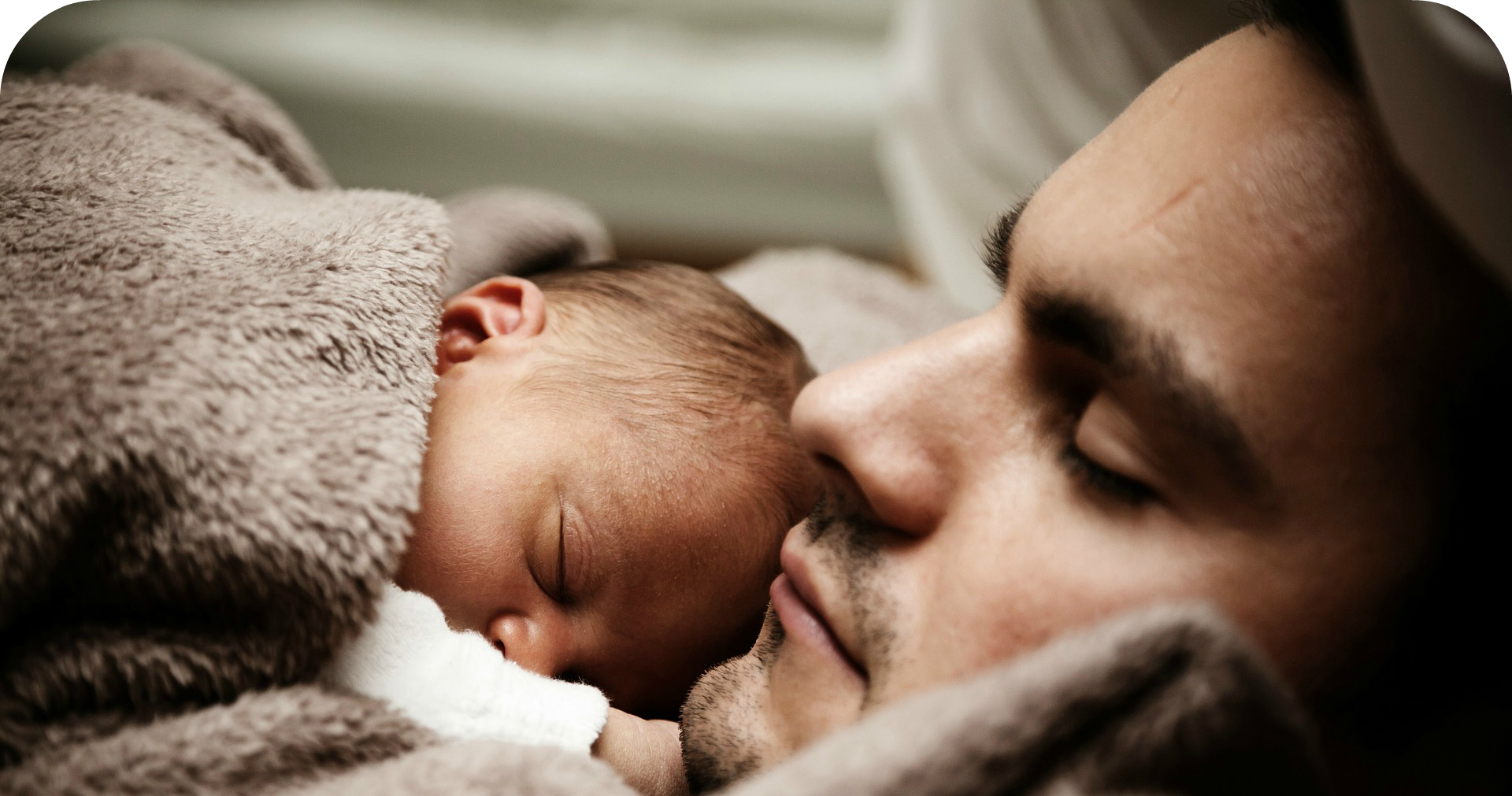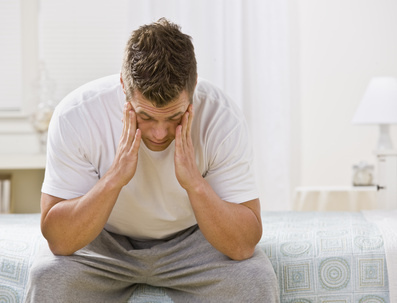While I’m yet to experience the joys and – no doubt – the stresses of parenthood, I’ve heard a fair few stories from all my relatives and friends with babies and young children. The overall picture is overwhelmingly positive, as you’d hope, but they haven’t omitted telling me about some of the worry, stress and even depression that having a child, particularly your first, can cause.
As Fathers’ Day (at least for us here in the UK) approaches, I’ve been looking into some of the research we’ve published about fatherhood. As I’ve looked, I’ve been struck by the fact that most of the stories I’ve heard about stress and depression have come from the point of view of the mother. However, the studies I found, plus some subsequent searching around, brought into sharper focus some of the issues that fathers can face, both in the lead up to, and following, the birth of their first child.
The anxieties of fathers before the birth
It doesn’t seem unreasonable that in the lead up to the birth of a child, and in particular a first child, both parents would feel some level of anxiety. However, while there’s plenty of research about mothers’ anxieties and concerns, and how this might link to postnatal depression, the corresponding research on fathers is somewhat scant.
As Colin Binns and colleagues acknowledge in a paper published in BMC Pregnancy and Childbirth, the role of fathers, particularly in developed countries, has changed significantly in the past two or three decades. Expectations of what fathers should contribute to the complex process of caring for their children are now much higher, with the focus shifting from the role of provider to that of nurturer and caregiver.
In contrast, the support and information offered to expectant parents is still much more focused on the mother and baby. Of course, it’s very important that this is the case, but perhaps there is more than can be done to include fathers in the process.
‘The new father’s role’ scenario in an article in the Medical Journal of Australia sums up a typical situation faced by new fathers, based on the experience of the authors through family practice, interviews, research and conducting therapy. It suggests that new fathers often look to their partners to make the key decisions in the clinic and read about the issues surrounding pregnancy, which leaves them with a limited understanding of what’s to come.
Postnatal depression in men
The words ‘postnatal depression’ are likely to conjure up a picture of an unhappy mother. One who is struggling to connect with her baby and deal with the daily demands of motherhood. Many celebrities have spoken out about their experiences of postnatal depression, and the condition has lost some of its stigma, becoming more widely recognized as requiring treatment and support.
But what about fathers? Again, there is less research into postnatal depression in men, but what there is still makes for interesting reading. A review carried out over 12 years, found that occurrences of postnatal depression in men ranged from 1.2% to 25.5% in different community samples. If a mother had postnatal depression, then depression in her partner was significantly more likely – between 24% and 50%.
Fathers can get postnatal depression too. Image courtesy of Mic445.
What’s the solution?
As with any mental health problem, there are likely to be a range of interventions that could help men adjust to the idea and reality of being a dad. The Binns et al. article in BMC Pregnancy and Childbirth looks at a ‘father inclusive’ intervention.
The intervention was actually primarily focused on supporting the partners of breastfeeding mums, aiming to increase the length of time that the babies were breast fed. But the authors also spotted other potential outcomes:
“We theorized that as the intervention contained many of the elements identified in the anxiety and depression literature as important to male participants… it would also reduce paternal anxiety.”
Their evaluation suggested that fathers welcomed the increased amount of information and support from male facilitators that was given as part of the intervention. Whilst discussions about the importance of early contact with their babies, the different roles fathers play in parenting, and shared experiences from the facilitators increased the opportunity for the participants to reflect on how they planned to play their role.
“[It] gives you a little insight to what you can expect coming out of hospital [and] how much your role changes,” said one prospective dad.
“Practical information on what to do as most of us haven’t got any idea what’s going on,” said another.
These kind of supportive interventions ahead and after the birth of a baby which include the father, rather than placing him at the sidelines, are becoming more common. Marley et al. suggest that as well as doing this, there is evidence to support reaching out to expectant dad’s through their partners:
“Men in the age group 20–35 years rarely seek medical advice unless they have acute symptoms, and are reluctant to seek advice regarding emotional health issues. Regular contact with mothers during the perinatal period through antenatal clinics, general practitioners and early childhood clinics provides an opportunity to supply information for their partners on parenting from a father’s perspective.”
Is there a solution? Fathers need to be included in interventions, rather than left on the sidelines. Image courtesy of makelessnoise.
Making sure that dads are comfortable in their new roles doesn’t just benefit them either. A study in Journal of Affective Disorders found that new mums were better able to emotionally adjust to motherhood when their partners had a better understanding of what they were experiencing.
So what can you take away from this? Well, it depends on who you are, but I know that if a friend or relative is expecting a baby in the future, I’ll be sparing a thought for the new dad and how he’s getting on. After all, not all support has to come from the professionals.



Comments